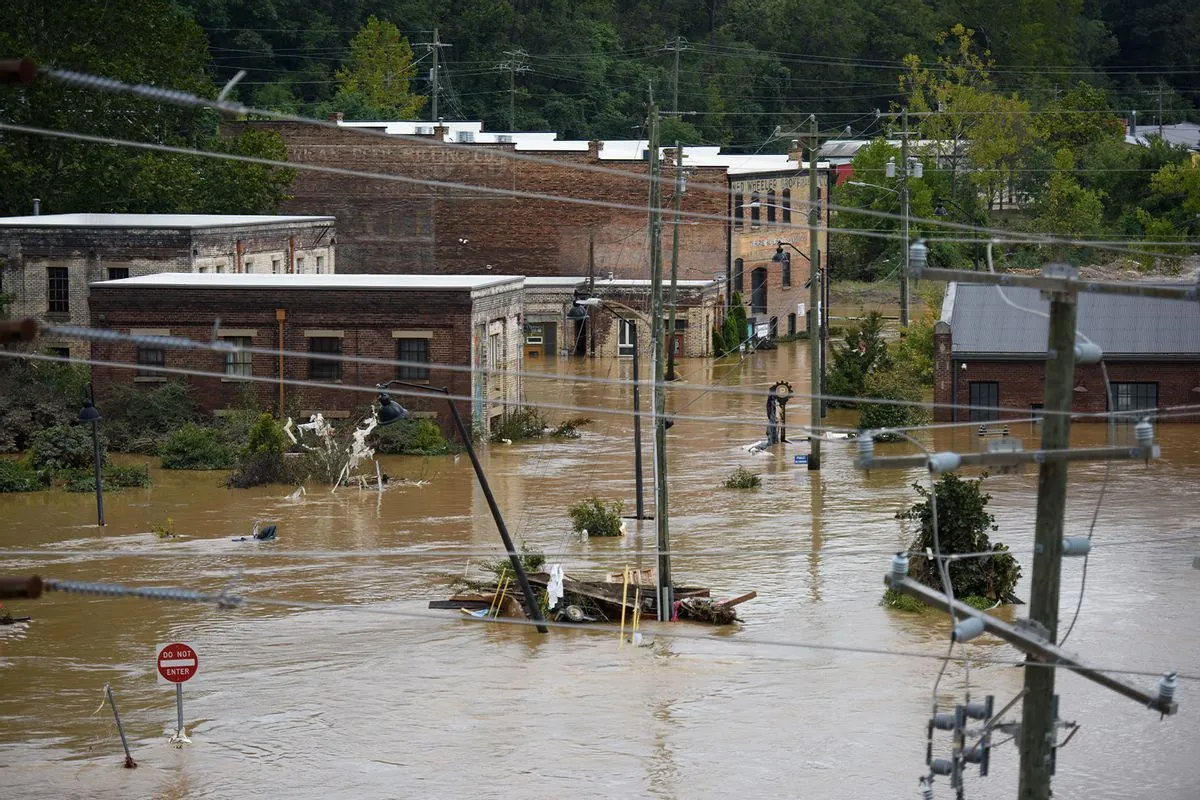In a devastating turn of events, Hurricane Helene has left a trail of destruction across the southeastern United States, with the mountainous city of Asheville, North Carolina bearing the brunt of its fury. The storm's impact has resulted in a staggering death toll of at least 215 across six states, with 72 fatalities reported in Asheville and surrounding Buncombe County alone.
Despite the National Weather Service's (NWS) extensive efforts to alert the public, the storm's ferocity caught many residents off guard. The NWS, established in 1870, issued numerous warnings in the days leading up to Helene's landfall, using stark language such as "URGENT" and "life-threatening" to convey the impending danger.
Steve Wilkinson, the meteorologist in charge of the NWS regional office in Greenville-Spartanburg, South Carolina, expressed his concern about the storm's impact exceeding even their dire predictions. The NWS accurately forecasted rainfall exceeding 12 inches in some areas and wind gusts reaching 106 mph at Mount Mitchell State Park, the highest peak in the Appalachian Mountains.
The French Broad River Basin experienced unprecedented flooding, with rivers cresting at levels several feet above their previous records. This event has been described as "likely the most severe flooding in recorded history across Buncombe County."
Many residents, unfamiliar with hurricane impacts in their mountainous region, struggled to grasp the magnitude of the threat. Brenton Murrell, an Asheville resident, admitted feeling detached from the danger despite receiving numerous warnings. He now regrets his decision to remain at home during the storm.
The challenges of evacuation in the mountainous terrain became apparent as the storm progressed. Sara Lavery of Canton described the terrifying scene as she watched large debris being carried by the swollen Pigeon River, a tributary of the French Broad River. The rapid progression from flood watches to warnings caught many by surprise, leaving some unable to evacuate safely.
"The last time a storm like this hit was in the Book of Genesis when Noah had to build an ark."
The disaster has prompted reflection on the effectiveness of warning systems and public preparedness in regions unaccustomed to hurricane impacts. While the NWS accurately predicted the storm's severity, conveying the full extent of the danger to residents proved challenging.
As Asheville and surrounding areas begin the long process of recovery, the event serves as a stark reminder of the increasing threat posed by extreme weather events. Climate scientists warn that climate change is likely to increase the intensity and frequency of hurricanes in the future, potentially putting more inland communities at risk.
The unprecedented nature of Hurricane Helene's impact on Asheville underscores the need for improved communication strategies and public education about the risks associated with hurricanes, even in mountainous regions. As communities rebuild, the lessons learned from this tragedy will be crucial in preparing for future extreme weather events.
